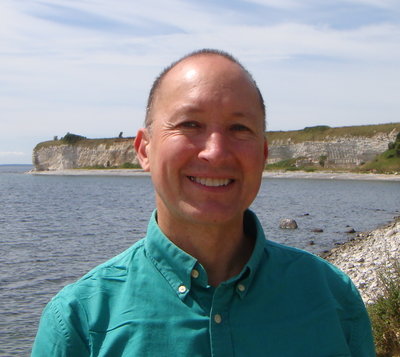
How and/or why did you become a therapist?
I became a therapist after I had lived abroad, mostly in Asia, for 7 years. My pre-travel days undergraduate degree was a BA in psychology, from which I had learned a lot about myself and the human condition, but after living in various Asian countries and diving deep into their ancient culture, I realized there was a lot of wisdom there that could help the mental health field evolve.
By the time I entered graduate school (Marriage & Family Therapy) I already had a few years worth of deep practice in meditation and Hatha yoga. I had some huge epiphanies from this. It was revolutionary, because the model for mental health in these ancient practices is quite simple and direct – only 1 thing is the cause of each person’s problems – each person’s EGO. Plain and simple, especially when compared to the almost limitless multitudes of complicated therapeutic models and strategems existing in all of western psychology, psychiatry, and mental health therapy. So in graduate school and in practice with clients this is the basis of what I shared with colleagues and professors and how I work with clients.
This was one of the driving factors in becoming a therapist, to introduce an alternative to the heavily based materialistic science approach to modern day mental health therapy of all types, for which the “hard question” is “What is consciousness?” When for the ancients in Asia, especially in India, it was ALL ABOUT EXPLORING CONSCIOUSNESS.
What are the most rewarding aspects of being a therapist?
When a client suddenly has a “Light Bulb” moment in their explorations of their lives and difficulties, where they suddenly see their role in the conflicts they have been involved with. This paradigm shift is exemplified by their taking responsibility for their part in their situations, and deciding to stop their repetitive patterns. This is a moment of self-empowerment that is wonderful to witness, like the special blossoming of cherry blossoms.
What’s unique or special in your background or approach to interpersonal relationships?
Now after 18 years and 10,000+ hours of practicing meditation and yoga, I have understood that what matters most is for each person to become more conscious. I am not a religious person, but I noticed that the center of all religions is the mystical experience of no-thought (simultaneously an expansion occurs) where a superconscious awareness becomes more rooted into one’s moment by moment existence. This leads to living life with more confidence, no doubt, and a deeper sense of gratitude for the unbelievable mystery of our lives on a planet that is moving through space at 60,000 mph….
So in the therapeutic context I intuitively remember that each person, whether they know it or not, are on a spiritual journey, and ironically perhaps more so when a person is a devout atheist. So I find ways to help people realize this in their own cultural background, in their own context, and then encourage them to start a daily and simple practice of whatever method they want to apply to become more grounded and centered in their lives, because a consistent practice is the key factor in this pursuit.
What are your favorite or most interesting interpersonal relationship tips/advice?
My advice for any mental health practitioner is simple, understand that you cannot solve your client’s problems. Any advice you give them is your manner of trying to resolve their difficulties if you were them. Each client has to find their own method, their own path, since each person has their own life trials to experience and grow from, and shockingly their own personalized task master is their own ego. Their trial is to realize that their ego is “a wonderful servant, but a terrible master” in order to move into a more balanced, aware, and grounded life.
What are some things about therapy that you want to increase public awareness about?
I want the public to become aware that the training of psychologists, psychiatrists and all other mental health practitioners in the mainstream academic field is unfortunately limited and hindered by an obsession on basing their systems on the materialistic scientific paradigm which shockingly cannot say anything about consciousness. Wouldn’t this seem to be a pre-requisite for being able to listen to others and their difficulties and deep pain? Wouldn’t a personal exploration of consciousness, beyond concepts, seem like a major requirement of becoming a mental health practitioner? Having already been a meditator while in graduate school opened my eyes to this deficiency, but the solution is quite simple: each student should be required to complete 5 silent 10 day meditation retreats before being allowed to graduate. A non-meditating therapist would be aghast with this suggestion, but any therapist with deep experience with meditation of any type would say “Of course!!!!”
What are some of the biggest mistakes a therapist or patient can make?
Some of the biggest mistakes can involve being too sympathetic with the client and their life-trials. Sympathy does not help and it ends up weighing heavier and heavier on the shoulders of a therapist, especially when they unconsciously match their client’s “energetic” profiles and don’t know how to “clean out.” Empathy is much healthier, and it helps the client when a therapist can stay steady and not get involved in their “dramas” and act like a mirror for them.
Another mistake for therapist is to not remember the powerful effects of what is known as “The Rosenthal Effect” which is basically a variation of the famous physics experiments of the particle/wave duality of light, but applied to living beings. I was stunned when I heard about this in graduate school, and have been even more stunned when I meet psychologists, psychiatrists, etc who don’t remember it.
Bio
You can learn more about Marcello Real at marcelloreal.com.